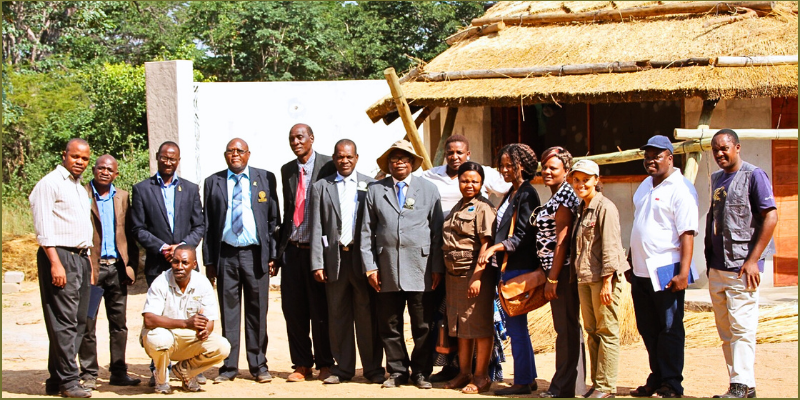How it all began..
Jan 30, 2025
This first blog is long past due! While Gobelo is not new (we’ve been working on it for ages…), we just had our very first sit down with the farm team in Hwange to get everyone on the same page about the future direction of this amazing community project. And as the conversation got going, we started to think about what got us here in the first place…
So over the next few weeks, we’d like to give you a glimpse into where it all began and what Gobelo is all about. First things first - we’d like to orient you. Everything that we’ve been doing so far is based in Hwange, Zimbabwe, and has been co-located with our tourism company Gwango. Well actually, it’s in Dete, which is a small town on the edge of Hwange National Park.
It all began in 2014, during a gathering with traditional leaders and stakeholders from the region. Elisabeth and her husband, Danny, were explaining their ideas for tourism in the region, but after lengthy discussions they came to realise that historically, little emphasis had been placed on exposing tourists (who visit the wildlife area) to the local customs, and culture of the indigenous people. They pledged back then to establish a cultural center and since then, the couple’s interactions with the area’s indigenous tribes has expanded their focus to include botany, science and capacity building.
But what does this all look like in practical terms and what have we actually achieved? We knew early on that there was a tremendous amount of untapped potential for the cross connect between culture and tourism, but culture can be shared in many ways. It’s in our music, or the expression of our dance - it’s in how we dress, what we believe - and perhaps most importantly, it’s the food we eat every day, and how we share our meals.. So in the early days, it was about bringing all these elements to life.
But the more time we spent with members of our community, working together as a team, which is comprised of people of many cultures, we became obsessed with the desire to gain deeper understanding of some of what had brought us together and what makes us all so different.
You must also know that at the time, we had very little else to do during the long evening hours. We would watch the blazing campfire - burning those dense teak logs to ashes while listening to the calls of the wild creatures in the forest that surrounds us. AND.. we would talk and share stories. Many of the stories turned into lessons which in time became expeditions into the villages to see first hand what we had been told.
When you don’t know or understand a thing, it’s often so much more insightful to see it, to touch it, to taste it - to smell it! And in time, that thing becomes a part of you. And this is what became the seeds that transformed us from discoverers to farmers. And now we like to think of ourselves as innovators and product developers.
What are we on about??? After many adventures into rural villages, we started to shape the ideas for what we now call our grow spaces which in essence are living innovation labs providing the learning ecosystem where new ideas can be tested and developed by combining indigenous knowledge, art, science and technology.
In our villages, community members possess knowledge from many generations. Knowledge which is slowly being eroded by modernisation and the perversion of what was once an authentic way of life. Natural materials, including roots, stems, bark and liquid extracts were used to feed, heal and fuel our existence, using only what came from the soil and what fell from our skies. But over time, commercialisation and artificial substitution of vital nourishment has reduced knowledge of what exists all around and what native plants can be grown to serve a myriad of needs.
By soaking up knowledge Elisabeth and our team, began to envision a future where not only could we grow our own vital food supply, but we could also collaborate with surrounding communities to generate income that helps to sustain the largely impoverished masses on the African continent. This would be achieved through the commercialisation of products made with what grows naturally in our forests and villages, right here in Africa.
Come on this journey with us, as we share what we are learning and what we intend to do.…